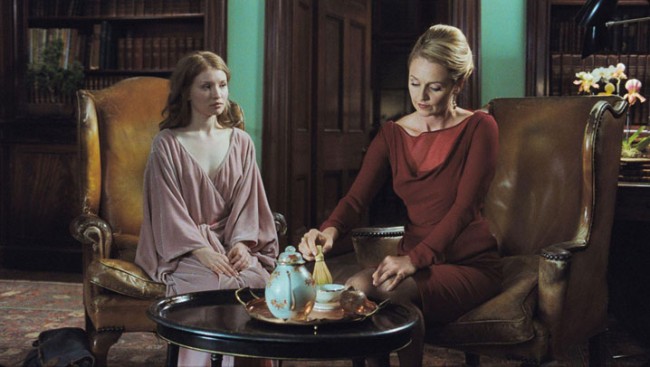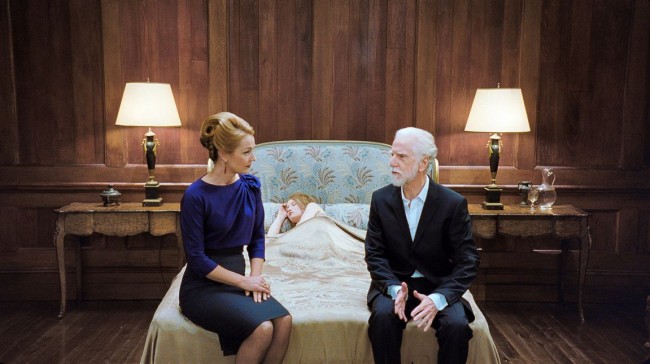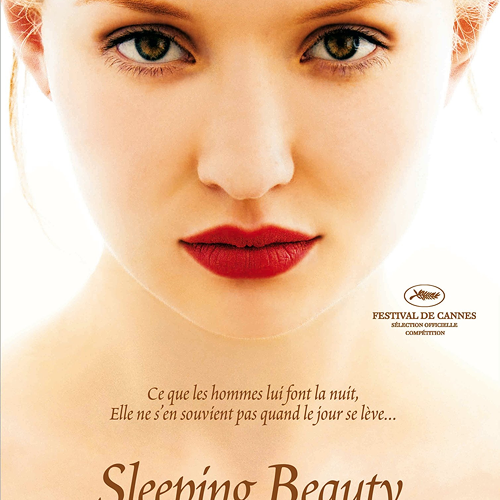
In Julia Leigh‘s unusual feature film debut Sleeping Beauty, the debutante director tries to paint a provocative picture of lust for youth. Intrigued by the sordid details that motivate our hidden desires, the film aims to shock viewers with the literal nakedness of it’s characters. This is contrasted by the hardships of a student struggling to get by and the painful mundane nature of her existence. And while the sumptuous trailer catapulted the hype surrounding the film at Cannes into the echelon of ‘must see’, the end product is a cold exercise in hollow meaningless cinema that will leave you frigid to the core.
Lucy (Emily Browning), a passive college student struggling to get by, has a litany of menial part time jobs that consumes her quiet life. After applying for a job in a student newspaper, Lucy becomes initiated by Clara (played with calculated menace by Rachael Blake) who after a rigorous interview dissecting every inch of Lucy’s near perfect body gives her an employment opportunity in a ridiculously high class brothel. But this isn’t your typical upscale brothel with your typical upscale client, instead of sex they desire complete submission of their possessions by having them remain unconscious while they fondle them and obsess over their own lost youth. Hence where the title of this existentialist fairy-tale derives from, as Lucy is drugged and asleep during her time with old men.

It’s no surprise that before jumping into making this movie, director Leigh has sustained a successful career as an established novelist. The reason this is no shock comes with Sleeping Beauty suffering from a persistent case of being too literary. The manner in which she presents our protagonist Lucy is straight out of a novel. Her mannerisms are muted, her dialogue is stilted and the way she absorbs her surroundings, you’d expect to be reading a book of her thoughts rather than watching a film. It reminded me of Amanda Seyfried‘s dead-eyed expression in Chloe, which is not a positive.The way in which the plot unfolds seems broken, rushing through the exposition in hopes that the lurid style of Leigh’s tableaux composition will bowl you over.
The obvious sentiment that Sleeping Beauty tries to evoke is shock, but instead it feels like schlock. The imagery of perfect skin and beauty contrasted with naked old men is designed to leave you uncomfortable, but there is very little cinematic punch to the scenes. The film is shot in Kubrickian symmetry, often with little-to-no camera movement, nearly no music and minimal editing within scenes in order to feel like a painting. You would think with techniques like that, paired with powerful sexual imagery would be reminiscent of films like Eyes Wide Shut and Salo, where the disturbing nature of their setting is truly haunting. In Sleeping Beauty, the setting is flat and the allegorical nature of Lucy’s journey through the twisted catacombs of elderly pleasure is bland and banal. The one interesting metaphor that might be unintentional, is how much the creepy old men in tuxedos reminded me of the same creepy old men in tuxedos with women a fraction of their age at Cannes.

